Succulents have become increasingly popular in recent years, and it’s not hard to see why. These unique plants come in a variety of shapes, sizes, and colors, making them a beautiful addition to any indoor garden. Not only are they aesthetically pleasing, but they also offer a range of benefits for plant enthusiasts.
One of the main benefits of having succulents in your indoor garden is their low maintenance nature. Succulents are known for their ability to store water in their leaves, stems, and roots, which means they require less frequent watering compared to other plants. This makes them perfect for busy individuals or those who may not have a green thumb.
Additionally, succulents are known for their air-purifying properties. They have the ability to remove toxins from the air, improving the overall air quality in your home. This can have a positive impact on your health and well-being.
The Common Bugs That Succulents Attract
While succulents may be low maintenance, they are not immune to insect infestations. There are several common bugs that can infest succulent plants, causing damage and potentially killing the plant if left untreated.
One of the most common insects that infest succulents is the mealybug. Mealybugs are small, soft-bodied insects that feed on the sap of plants. They can be identified by their white, cotton-like appearance and can often be found in clusters on the leaves and stems of succulents. Mealybugs can cause stunted growth, yellowing leaves, and even death if not controlled.
Another common pest is the spider mite. These tiny pests are difficult to see with the naked eye but can cause significant damage to succulent plants. Spider mites feed on the sap of plants and can cause yellowing leaves, webbing on the plant, and eventually death if not treated.
Understanding the Life Cycle of Insects
To effectively prevent and control insect infestations in your succulent plants, it’s important to understand the life cycle of insects. Insects go through several stages in their life cycle, including egg, larva, pupa, and adult.
By understanding the life cycle of insects, you can identify the stage at which they are most vulnerable and target your control methods accordingly. For example, if you notice eggs on your succulent plants, you can remove them before they hatch and prevent a full-blown infestation.
Additionally, understanding the life cycle of insects can help you determine the best time to apply treatments. Some insecticides are most effective when applied during certain stages of an insect’s life cycle, so knowing when the pests are most vulnerable can increase the effectiveness of your control methods.
How to Identify Insect Infestations in Your Succulent Plants
Identifying insect infestations in your succulent plants is crucial for effective control. There are several signs to look out for when checking your plants for infestations.
One common sign of an infestation is visible damage to the leaves or stems of the plant. This can include holes in the leaves, discoloration, or wilting. Additionally, you may notice webbing or silk-like threads on the plant, which can indicate the presence of spider mites.
Another sign to look out for is the presence of insects themselves. Some pests, like mealybugs, are easily visible due to their white, cotton-like appearance. Others may be more difficult to spot, so it’s important to thoroughly inspect your plants.
It’s also important to differentiate between different types of insect damage. Some insects may cause similar symptoms, but the treatment methods may vary. For example, mealybugs and spider mites both feed on plant sap but require different control methods.
The Dangers of Pesticides for Your Indoor Garden
While pesticides can be effective in controlling insect infestations, they can also pose risks to your plants and health. Many commercial pesticides contain harmful chemicals that can damage your succulent plants and potentially harm you or your pets.
Pesticides can cause leaf burn, discoloration, and even death if not used properly. Additionally, the chemicals in pesticides can be toxic if ingested or inhaled. This is especially concerning if you have children or pets in your home.
Fortunately, there are alternative methods for controlling insect infestations that are safer for both your plants and your health.
Natural Ways to Control Insect Infestations
Natural remedies can be just as effective as pesticides in controlling insect infestations, without the harmful side effects. There are several natural remedies that you can use to control pests in your succulent plants.
One effective natural remedy is neem oil. Neem oil is derived from the neem tree and has insecticidal properties. It can be diluted with water and sprayed onto your plants to control a variety of pests, including mealybugs and spider mites.
Another natural remedy is a mixture of dish soap and water. This solution can be sprayed onto your plants to suffocate and kill pests. It’s important to use a mild dish soap without added chemicals or fragrances to avoid damaging your plants.
Additionally, introducing beneficial insects into your indoor garden can help control pest populations. Ladybugs, for example, feed on aphids and other small insects that may infest your succulent plants. You can purchase ladybugs online or at a local garden center and release them into your garden.
The Importance of Proper Watering and Drainage
Proper watering and drainage are essential for maintaining healthy succulent plants and preventing insect infestations. Overwatering can lead to root rot, which not only weakens the plant but also attracts pests.
Succulents are adapted to survive in arid conditions and prefer well-draining soil. When watering your succulent plants, it’s important to allow the soil to dry out completely between waterings. This helps prevent root rot and creates an environment that is less attractive to pests.
In addition to proper watering, good drainage is crucial for succulent plants. If the soil does not drain well, excess water can accumulate around the roots, leading to root rot and attracting pests. To improve drainage, you can add perlite or sand to your potting mix.
The Role of Soil and Fertilizer in Preventing Insect Infestations
The type of soil and fertilizer you use can also play a role in preventing insect infestations in your succulent plants. Succulents prefer well-draining soil that is specifically formulated for their needs.
When choosing soil for your succulent plants, look for a mix that contains a combination of organic matter, such as compost or peat moss, and inorganic matter, such as perlite or sand. This will provide the right balance of moisture retention and drainage.
Fertilizer is also important for the health of your succulent plants. However, it’s important to use a fertilizer specifically formulated for succulents, as they have different nutrient requirements compared to other plants. Over-fertilizing can lead to excessive growth and attract pests.
Tips for Maintaining a Healthy and Pest-Free Indoor Garden
To maintain a healthy and pest-free indoor garden, it’s important to implement the tips and methods discussed in this article. Here is a summary of the key points:
– Choose succulent plants for their beauty and low maintenance nature.
– Be aware of common pests that infest succulents, such as mealybugs and spider mites.
– Understand the life cycle of insects to effectively prevent and control infestations.
– Look out for signs of infestations, such as visible damage or the presence of insects.
– Avoid using harmful pesticides and opt for natural remedies instead.
– Proper watering and drainage are crucial for preventing infestations.
– Use well-draining soil and fertilize with a succulent-specific fertilizer.
– Regularly inspect your plants and take action at the first sign of an infestation.
Additionally, maintaining a clean and tidy indoor garden can help prevent insect infestations. Remove any dead leaves or debris from your plants, as these can attract pests. Regularly dust your plants to remove any potential hiding spots for insects.
Conclusion: Enjoying Your Succulent Plants Without Worrying About Bugs
In conclusion, succulent plants offer both beauty and benefits for indoor gardens. However, they are not immune to insect infestations. By understanding the common bugs that infest succulents, their life cycle, and how to identify infestations, you can effectively prevent and control pests in your indoor garden.
It’s important to avoid using harmful pesticides and opt for natural remedies instead. Proper watering and drainage, as well as choosing the right soil and fertilizer, are also crucial for maintaining healthy succulent plants.
By implementing these tips and methods, you can enjoy your succulent plants without worrying about insect infestations. With their low maintenance nature and air-purifying properties, succulents are a beautiful addition to any indoor garden.
If you’re a fan of succulents, you may be wondering if these trendy plants attract bugs. According to a recent article on GirlsGist, succulents can indeed attract bugs, especially if they are overwatered or placed in an environment with poor air circulation. The article provides helpful tips on how to prevent and deal with bug infestations in your succulent collection. To learn more about this topic, check out the article here.








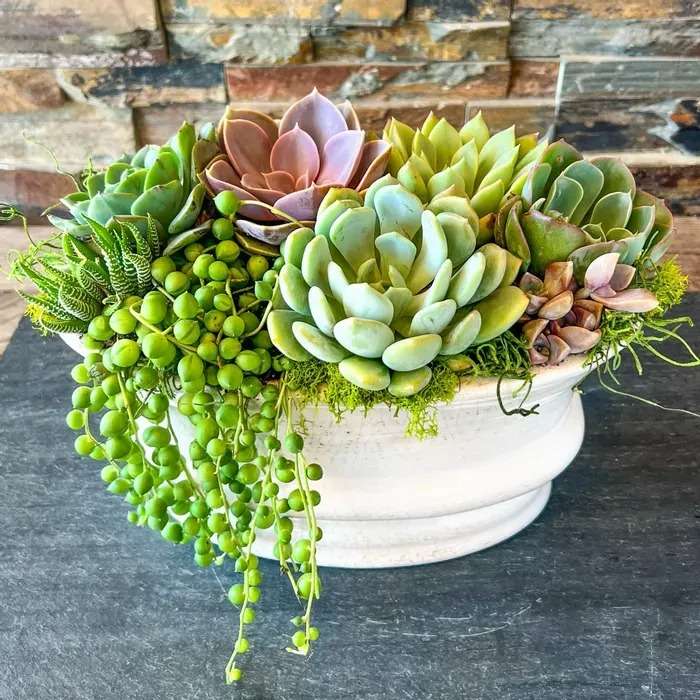
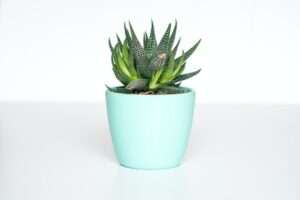
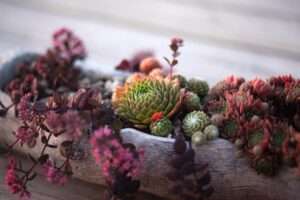



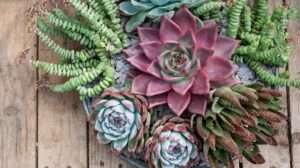
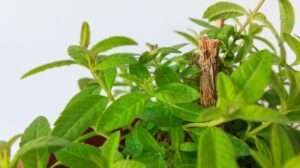
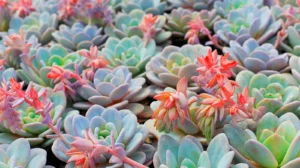
Add Comment